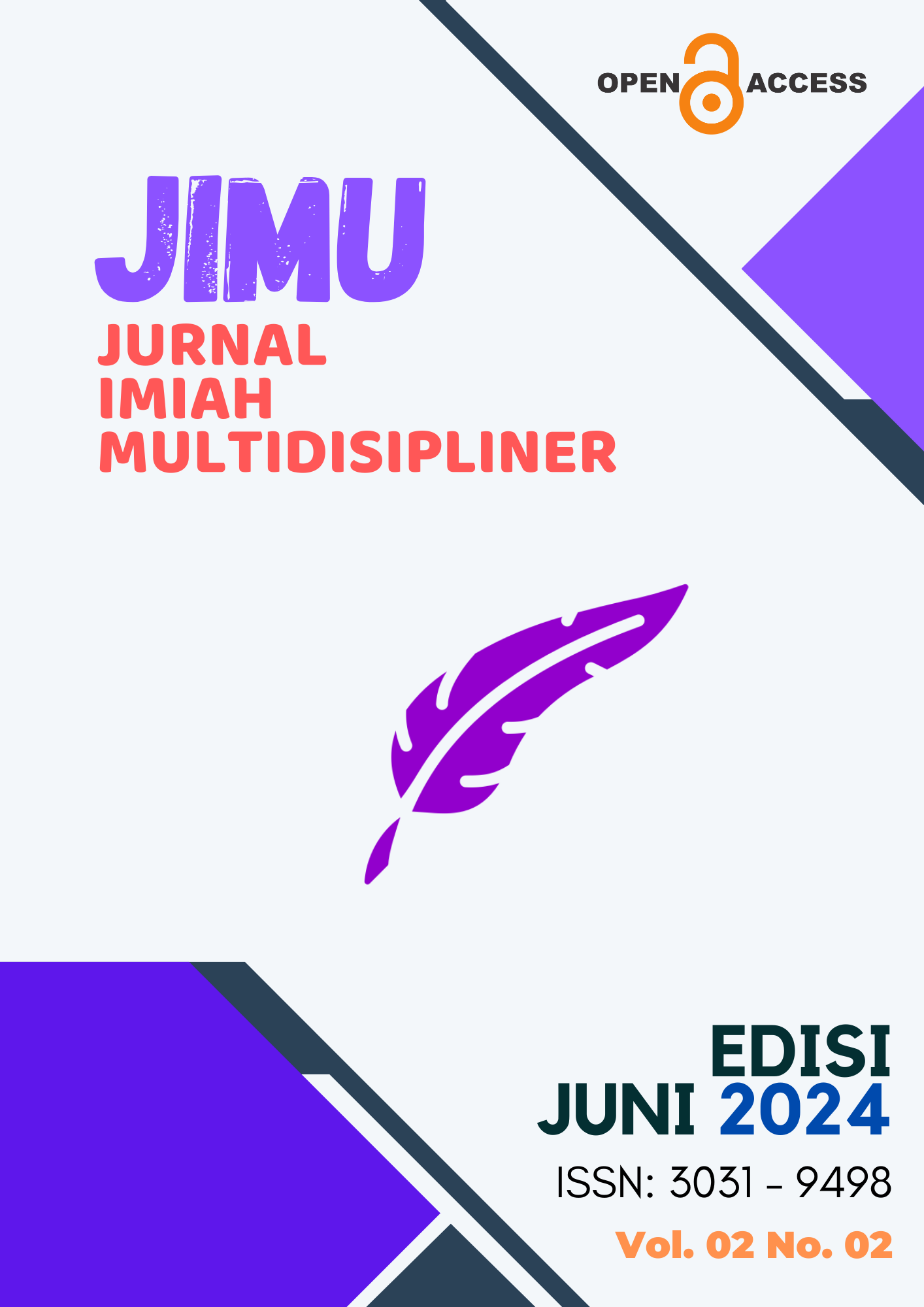MSMEs Upgrade with The Concept of Green Accounting and Digitalization: Study Literature Review
Kata Kunci:
green accounting, digital accounting, MSMEsAbstrak
Micro, small, and medium enterprises (MSMEs) are key players in the small and environmentally friendly industrial sector. However, the integration of green accounting and digitization within MSMEs remains underdeveloped, presenting an opportunity for further research. This study aims to examine the progress of green accounting and digital accounting practices in MSMEs. It will explore both macro and micro perspectives on green accounting, focusing on environmental issues, ecological science, and the sustainable management of natural ecosystems. The research methodology involves a literature review, with a population sample of 1,603 MSME units in the city of Medan. Findings suggest that MSMEs can elevate their status by adopting digitalization in their marketplaces and implementing green accounting principles, which can generate benefits for both the environment and the enterprises themselves.
Unduhan
Referensi
Anggraeni, H. (2019). Penguatan blended learning berbasis literasi digital dalam menghadapi era revolusi industri 4.0. Al-Idarah: Jurnal Kependidikan Islam, 9(2), 190–203.
Aprilianti, N. A. (2021). Perancangan Aplikasi Sistem Informasiakuntansi Penjualan Pada Cv Sama Cinta. Politeknik Negeri Sriwijaya.
Bernard, D. (1990). Workgroup issue paper: Community or ecosystem level indicators: Introduction to indicators at the community or ecosystem level. Environmental Monitoring and Assessment, 15(3), 281– 282.
Cairns, R. D. (2001). Seeing the trees as a forest: what counts in green accounting. Ecological Economics, 36(1), 61–69.
Chen, B., Dai, J., & Sciubba, E. (2014). Ecological accounting for China based on extended exergy. Renewable and Sustainable Energy Reviews, 37, 334–347.
Creswell, J. W., & Creswell, J. D. (2017). Research design: Qualitative, quantitative, and mixed methods approaches. Sage publications.
Cucchiella, F., D’Adamo, I., Gastaldi, M., Koh, S. C. L., & Rosa, P. (2017). A comparison of environmental and energetic performance of European countries: A sustainability index. Renewable and Sustainable Energy Reviews, 78, 401–413.
De Beer, P., & Friend, F. (2006). Environmental accounting: A management tool for enhancing corporate environmental and economic performance. Ecological Economics, 58(3), 548–560.
Handayani, N. L. P., & Soeparan, P. F. (2022). Peran Sistem Pembayaran Digital Dalam Revitalisasi UMKM.
Transformasi: Journal of Economics and Business Management, 1(3), 20–32.
Harrison, A. (1989). Introducing natural capital into the SNA. Environmental Accounting for Sustainable Development. World Bank, Washington, DC, 19–25.
House, M. A. (1990). Water quality indices as indicators of ecosystem change. Environmental Monitoring and Assessment, 15, 255–263.
Kuik, O. J., & Verbruggen, H. (2012). In search of indicators of sustainable development (Vol. 1). Springer Science & Business Media.
Marlina, L., & Rahmat, B. Z. (2018). Peran Lembaga Keuangan Syariah Dalam Mengimplementasikan Keuangan Inklusif Bagi Pelaku UMKM Tasikmalaya. Jurnal Ecodemica, 2(1), 125–135.
Peraturan Pemerintah. (2021). Nomor 7 Tahun 2021 tentang Kemudahan. Perlindungan, Dan Pemberdayaan Koperasi Dan Usaha Mikro, Kecil Dan Menengah (UMKM).
Pratami, A. F. (2022). Analisis Penerapan Digitalisasi Sistem Informasi Akuntansi Pembiayaan Murabahah Kspps Made Demak. Universitas Islam Sultan Agung.
Riana, I. G., Wiagustini, N. L. P., & Meydianawathi, L. G. (2014). Master Plan UMKM berbasis perikanan untuk meningkatkan pengolahan produk ikan yang memiliki nilai tambah tinggi. Jurnal Ekonomi Kuantitatif Terapan, 7(2), 102–119.
Stanojević, M., Vraneš, S., & Gökalp, I. (2010). Green accounting for greener energy. Renewable and Sustainable Energy Reviews, 14(9), 2473–2491.
Sunaryono, S., SETIANTI, N., Purnomo, J., Purbasari, W., Hardjono, Y., & Safitri, R. (2022). KEGIATAN DIGITALISASI UMKM KAB. WONOSOBO. Teknikom: Teknologi Informasi, Ilmu Komputer Dan Manajemen, 7(2), 1–10.
Vasda, M. (2022). Peran Perdagkum Ponorogo Dalam Pengembangan Umkm Berbasis Digital Di Kabupaten Ponorogo. Universitas Muhammadiyah Ponorogo.
Wijaya, H. (2018). Analisis data kualitatif ilmu pendidikan teologi. Sekolah Tinggi Theologia Jaffray.
Yasrawan, K. T., & Werastuti, D. N. S. (2022). Bagaimana Peran Dan Penerapan Akuntansi Hijau Di Indonesia? Jurnal Akuntansi Kontemporer, 14(3), 151–161.”









